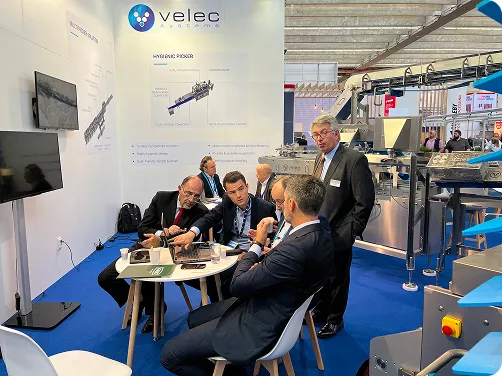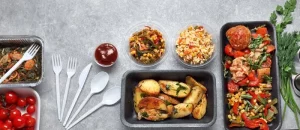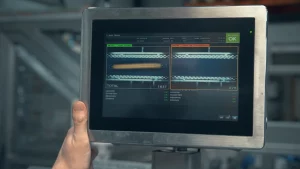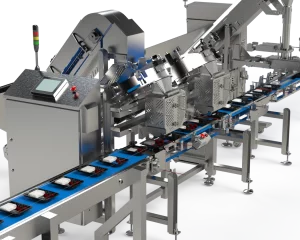Being a supplier of food filling machines to the ready-made meal industry is about more than simply selling machines. In addition to supplying volumetric fillers, your supplier should form an ongoing partnership with you that begins with consultations on how to optimize your production line, includes installation and customization, and incorporates ongoing support and advice regarding operation and maintenance. Multi-Fill offers a variety of value-added services to our clients, and we are happy to become a long-term partner in building and maintaining your filling line. Our food filling line services include:
- Evaluation and testing of your products in one of our pilot plants.
- Installation and commissioning
- RTE (Ready-to-Eat) machine rebuilds
- Maintenance and repairs
- Supply of spare parts
- Training
- Upgrades and modifications
Outstanding personal service is key to our relationship with our customers and involves all company departments and functions from people who know the market and challenges you face every day. We can give you fast, local decision making. Teamwork with our customers is key to our success.
FAQs About Our Filling Machines and Services
To help you better understand our machines and the services we provide, we have compiled answers to some of the questions we are most often asked about the challenges of the food packing industry and our solutions to them.
- Are your RTE machines wash-down? Yes. All of our machines are designed to be as sanitary and simple to clean as possible. All of our surfaces are designed with a pitch to shed water and prevent pooling. We also include full washdown instructions with every machine.
- Can your machines fill cooked or sticky rice? Yes! Sticky rice is what led to the invention of our machines. We can manage all sorts of foods, from sticky rice to pasta to fruit and more.
- How many containers per minute can you fill? The speed of our machines varies by model, layout, product to be filled, and container type. Using a distribution system, and whether it is a stop-start or continuous line are other important factors. Some foods we can fill up to 120 containers per minute.
- How often do your machines need cleaning? Our machines are compliant with all applicable industry standards for cleanliness. The time between cleanings is a function of the type of product and the line speed.
- Do I need tools to clean your machines? We have designed our machines to be taken apart for cleaning with no tools. Assembly and disassembly is done with quick connections and hand tightening. The entire process takes only a few minutes
- Can Multi-Fill machines integrate with existing systems? Yes! Our machines are designed to be plug and play, meaning they can integrate well into virtually all existing lines. We manufacture them to fit your space and work within your existing systems.
- What is assembly and disassembly like? All of our machines are designed for ease of use and minimal training. Assembly and disassembly procedures do not require any tools whatsoever. Our machines use quick connections and hand tightening to set up and tear down.
- Where are your machines built? All of our machines are proudly built at our main factory in West Jordan, Utah, USA.
- Is Multi-Fill a good fit for me? We stand behind our products 100%, but we know our machines aren’t a good fit for every product and container. Contact our team to set up a demo of your product, and see if Multi-Fill is right for your company.
- Do you offer a guarantee? We work closely with your team throughout the entire engineering process to ensure our machines can handle your product, container, and production line. We build our machine specifically for your application, and we do stand behind our workmanship.
Multi-Fill designs and manufactures food filling machines for the ready-made meal industry. Contact us for more information.



